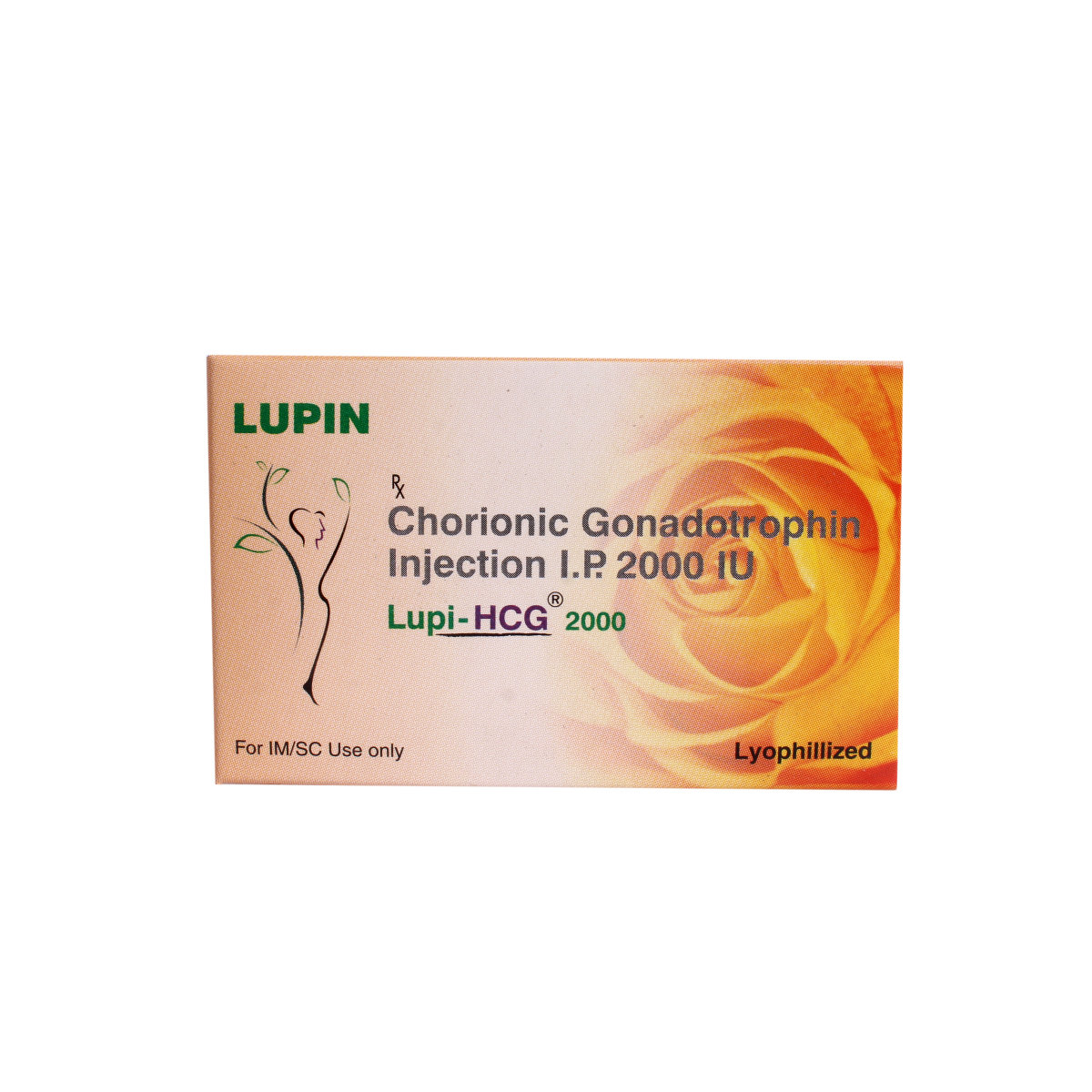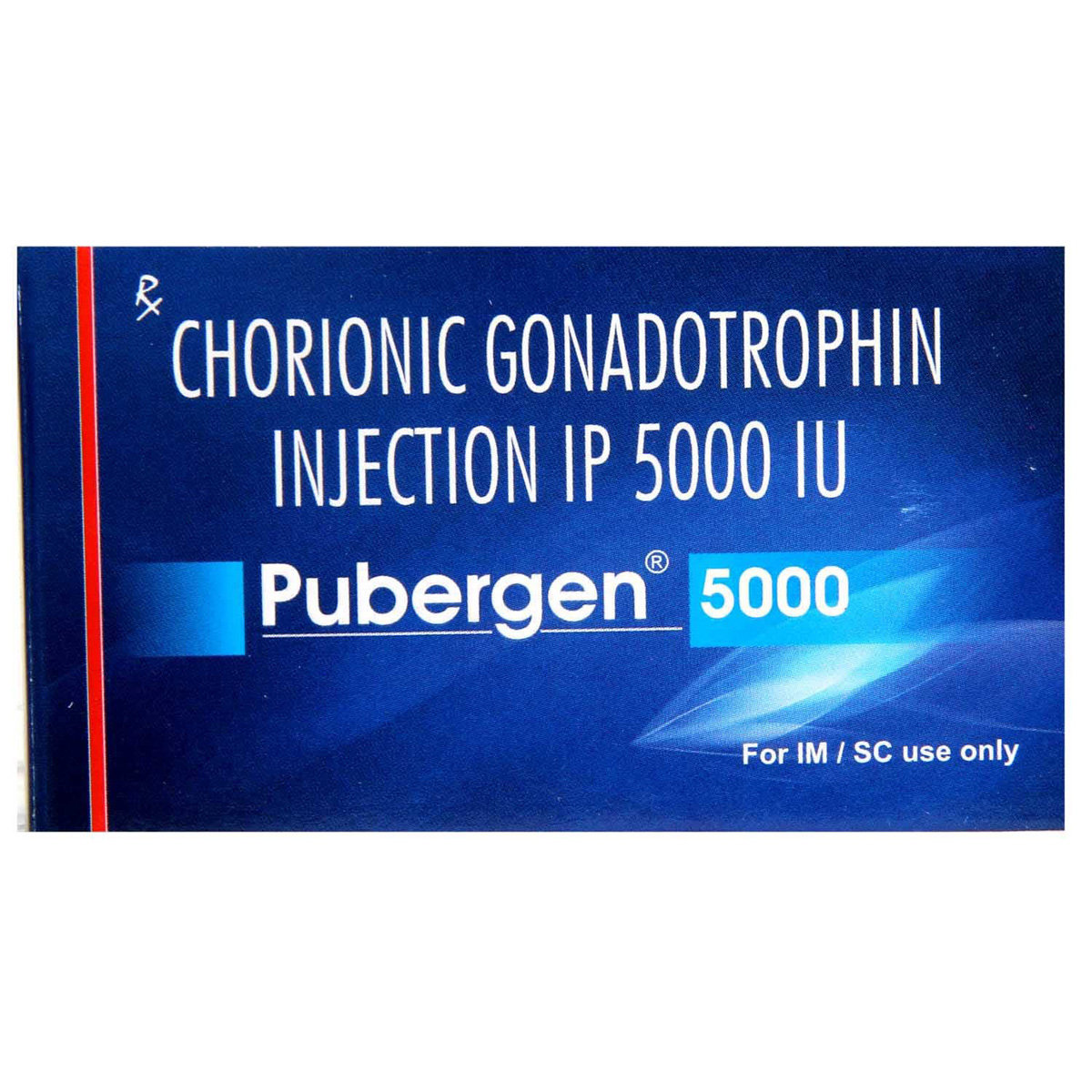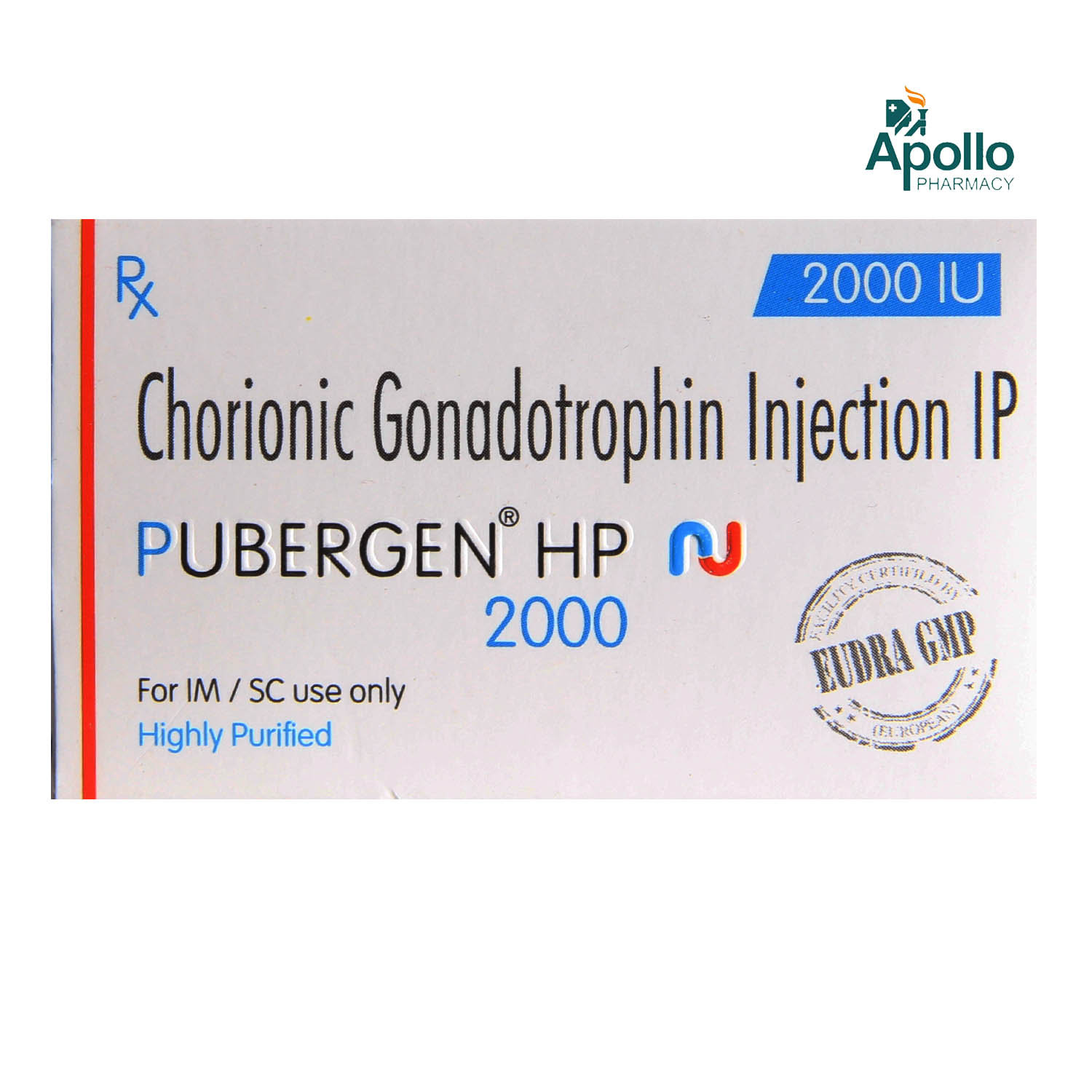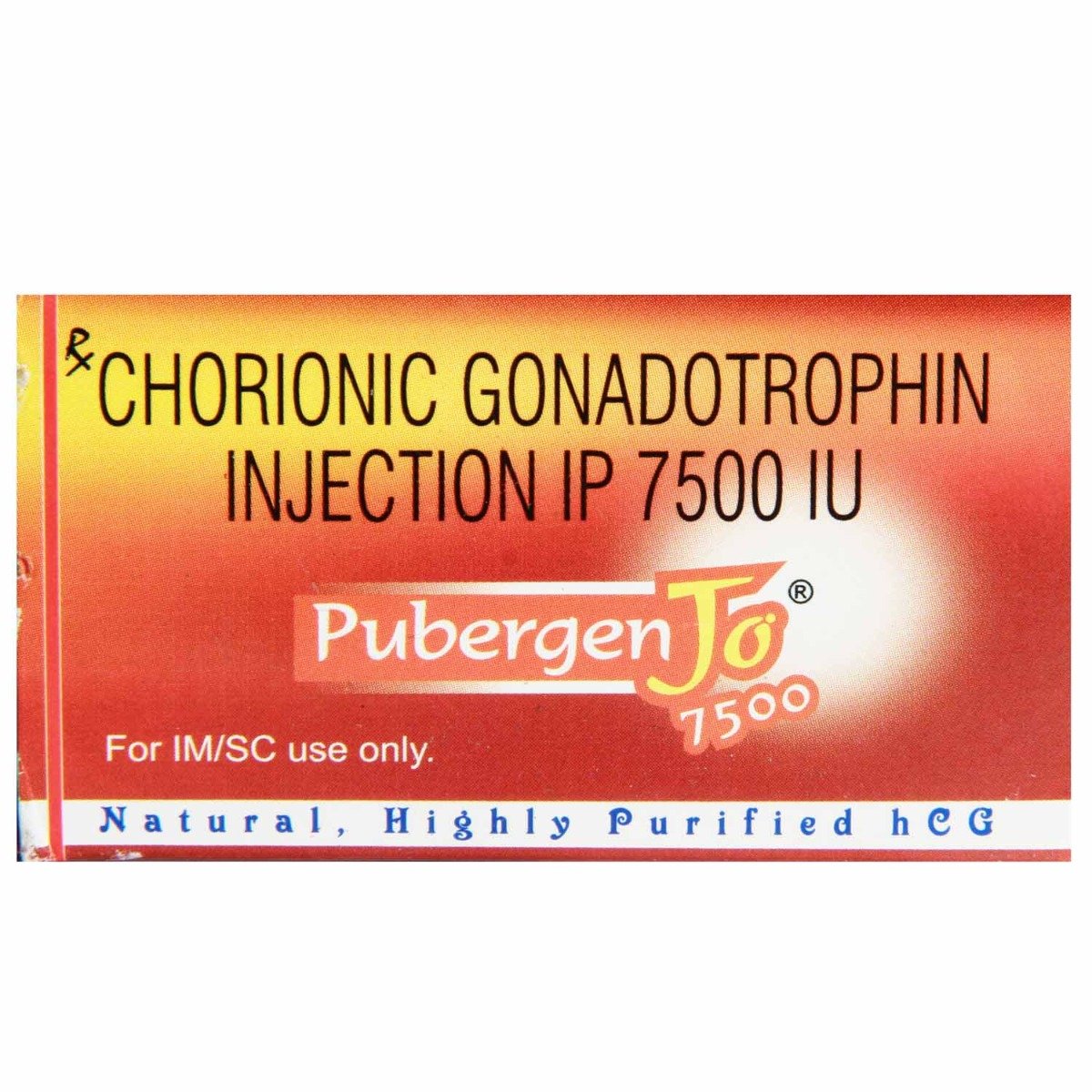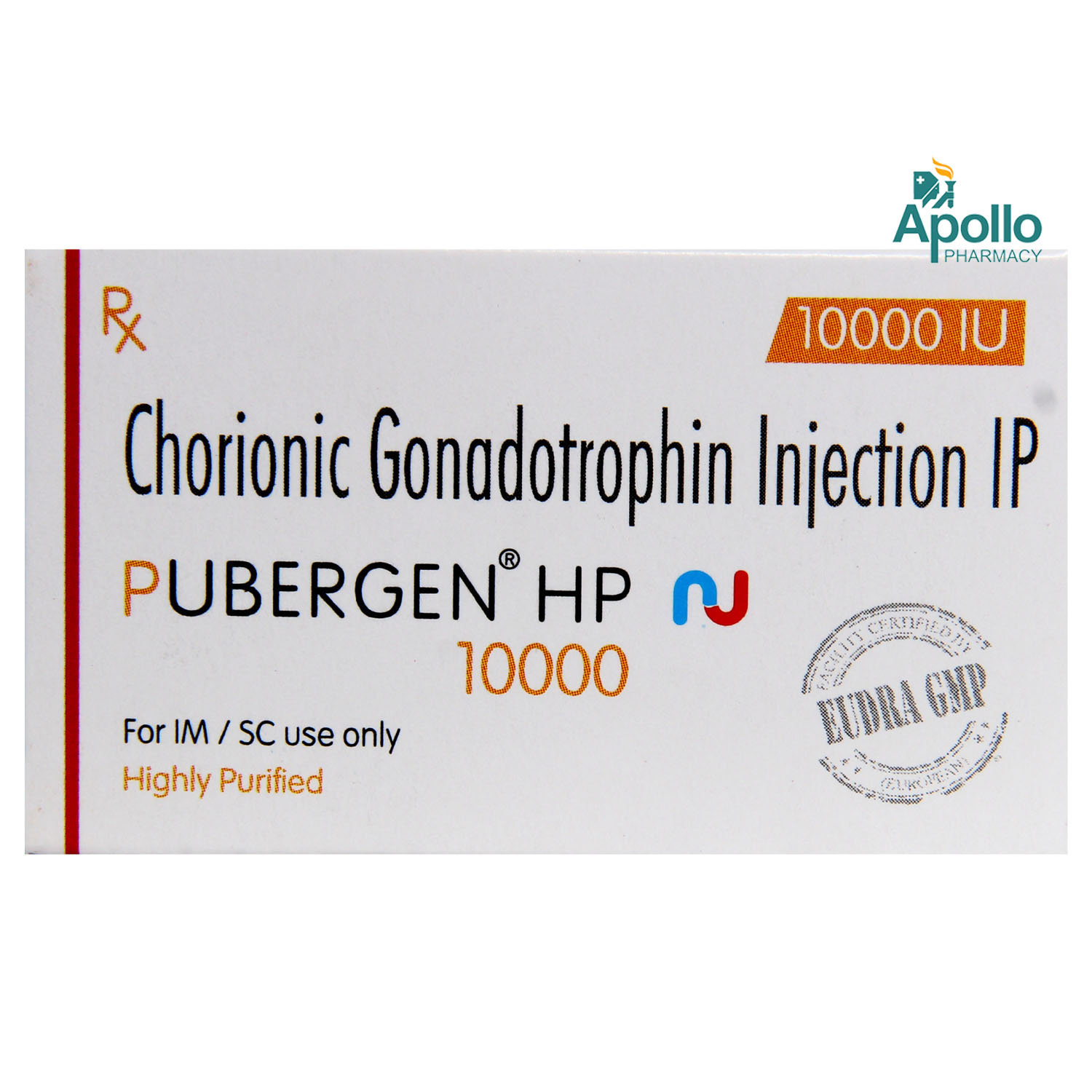Human Chorionic Gonadotrophin
About Human Chorionic Gonadotrophin
Human Chorionic Gonadotrophin belongs to the class of sex hormones used in the treatment of female infertility, male hypogonadism and cryptorchidism. Female infertility is when a woman is unable to get pregnant within a year of trying. Male hypogonadism is a condition in which the body does not produce enough hormone responsible for masculine growth in men. Cryptorchidism is a condition in which testes don’t descend into the scrotum (bag of skin present below the penis).
Human Chorionic Gonadotrophin contains ‘human chorionic gonadotrophin’ used in the treatment of female infertility and male hypogonadism. It stimulates the production of sex hormones such as testosterone in men and progesterone in women. It can stimulate ovulation (egg production) in women and improve sperm production in men.
Human Chorionic Gonadotrophin is usually administered by a healthcare professional. The common side-effects of Human Chorionic Gonadotrophin are pain at the injection site, headache, irritability, restlessness, depression, fatigue, oedema (swelling), early puberty and gynecomastia (swelling of breast tissue in men).
Do not take Human Chorionic Gonadotrophin if you are allergic to ‘human chorionic gonadotrophin’ or any other ingredients present in it. It should not be used in patients with conditions such as early puberty, prostatic cancer or other androgen-dependent cancers, unexplained vaginal bleeding, uncontrolled thyroid or adrenal gland dysfunction and ovarian cysts. It is not recommended for use in pregnant women and should be used with caution in breastfeeding mothers.
Uses of Human Chorionic Gonadotrophin
Medicinal Benefits
Human Chorionic Gonadotrophin contains ‘human chorionic gonadotropin’, which belongs to the class of ‘sex hormones’. It is used in treating female infertility in whom the cause of ovulation problems is a secondary ovarian failure (normal ovaries that don’t function properly). It can also treat male hypogonadism in which the testes are normal but don’t function properly. It can treat cryptorchidism in boys from age 4 to 9 if there is no structural deformity. However, the descending of testes into the scrotum is usually temporary when Human Chorionic Gonadotrophin is used.
Directions for Use
Storage
Side Effects of Human Chorionic Gonadotrophin
- Injection site pain
- Headache
- Irritability
- Restlessness
- Depression
- Fatigue
- Oedema (swelling)
- Early puberty
- Gynecomastia (swelling of breast tissue in men)
Drug Warnings
Human Chorionic Gonadotrophin may cause multiple pregnancies (pregnant with more than one child at the same time). So, discuss with your doctor the possible risks of this medicine. It can increase the risk of blood clots. An anaphylactic reaction such as shortness of breath, hives, loss of consciousness, low pulse and shock have been reported with HCG products derived from urine. In some cases, worsening of preexisting ovarian cysts or sudden ovary enlargement can be seen. So, regular monitoring is required. Early puberty may be seen in children. In such cases, discontinue therapy immediately and consult a doctor.
Drug Interactions
Drug-Drug Interaction: Inform your doctor about the medicines you take, including prescription and non-prescription drugs before starting Human Chorionic Gonadotrophin.
Drug-Food Interaction: No interactions were found.
Drug-Disease Interaction: Human Chorionic Gonadotrophin is contraindicated in conditions such as early puberty and androgen-dependent cancers, unexplained vaginal bleeding, uncontrolled thyroid or adrenal gland dysfunction, and ovarian cysts. It should be used with caution in patients with heart or kidney disease, epilepsy (fits), migraine (persistent headache), or asthma (a lung problem).
Drug-Drug Interactions Checker List:
Safety Advice

Alcohol
cautionAlcohol may interfere with the efficacy of Human Chorionic Gonadotrophin.

Pregnancy
unsafeHuman Chorionic Gonadotrophin is a category X drug. It should not be used in pregnant women as it may cause birth defects/congenital disabilities.

Breast Feeding
cautionHuman Chorionic Gonadotrophin should be used with caution in breastfeeding mothers.

Driving
safe if prescribedHuman Chorionic Gonadotrophin may not affect your ability to drive.

Liver
safe if prescribedHuman Chorionic Gonadotrophin can be safely used in patients with liver diseases if prescribed.

Kidney
cautionHuman Chorionic Gonadotrophin can cause oedema (fluid retention), so it should be used cautiously in patients with kidney diseases.

Children
cautionHuman Chorionic Gonadotrophin may cause early puberty. So, therapy should be discontinued immediately if the children develop any signs of early puberty.
Habit Forming
Diet & Lifestyle Advise
- Consume a healthy diet that is rich in fibre, proteins and low in carbohydrates, fats.
- Avoid processed or high-sugar foods.
- Stay active and shed excess weight if you are overweight or obese. Do not perform intense exercises as it may negatively impact your reproductive health. Increase the intensity of exercise gradually.
- Being underweight may also affect fertility. So, prepare a diet chart that can help you to gain weight healthily.
- Avoid stress as it may affect your fertility. Try relaxation techniques and receive support and counselling if necessary.
- Limit alcohol and caffeine intake.
- Quit smoking.
Special Advise
- To be sure HCG is helping your condition, your doctor will need to check you on a regular basis. Do not miss any scheduled appointments.
- Some women using this medicine have developed a condition called ovarian hyperstimulation syndrome (OHSS), especially after the first treatment cycle. OHSS can be a life-threatening condition. Call your doctor right away if you have any symptoms of OHSS like severe pelvic pain, swelling of the hands or legs, stomach pain and swelling, shortness of breath, weight gain, diarrhea, nausea or vomiting or if you are urinating less than normal.
Patients Concern
Disease/Condition Glossary
Female infertility: When a woman is not able to become pregnant within a year of trying. If a woman gets pregnant but experiences miscarriages or stillbirths, it is also included in infertility.
Male hypogonadism: It is a condition in which hormones such as testosterone responsible for masculine growth in men are not produced enough in the body. It may cause decreased sexual desire, erectile dysfunction and low sperm production.
Cryptorchidism: It is a condition in which testis fails to descend into the scrotum of boys. It is commonly seen in boys with premature birth and can be easily identified in newborns.
FAQs
Human Chorionic Gonadotrophin contains 'human chorionic gonadotrophin' used in the treatment of female infertility and male hypogonadism. It stimulates the production of sex hormones in men and women and improves fertility.
Human Chorionic Gonadotrophin is not recommended for the treatment of obesity. It does not affect appetite loss and weight reduction.
Human Chorionic Gonadotrophin should not be given to patients with thyroid problems. This medicine may cause an increase the production of thyroid hormones and cause unwanted effects when used in patients with thyroid dysfunction.
Human Chorionic Gonadotrophin may increase the chance of getting pregnant with more than one child (multiple pregnancies) in most cases. Discuss with your doctor the possible benefits and risks before taking Human Chorionic Gonadotrophin.




